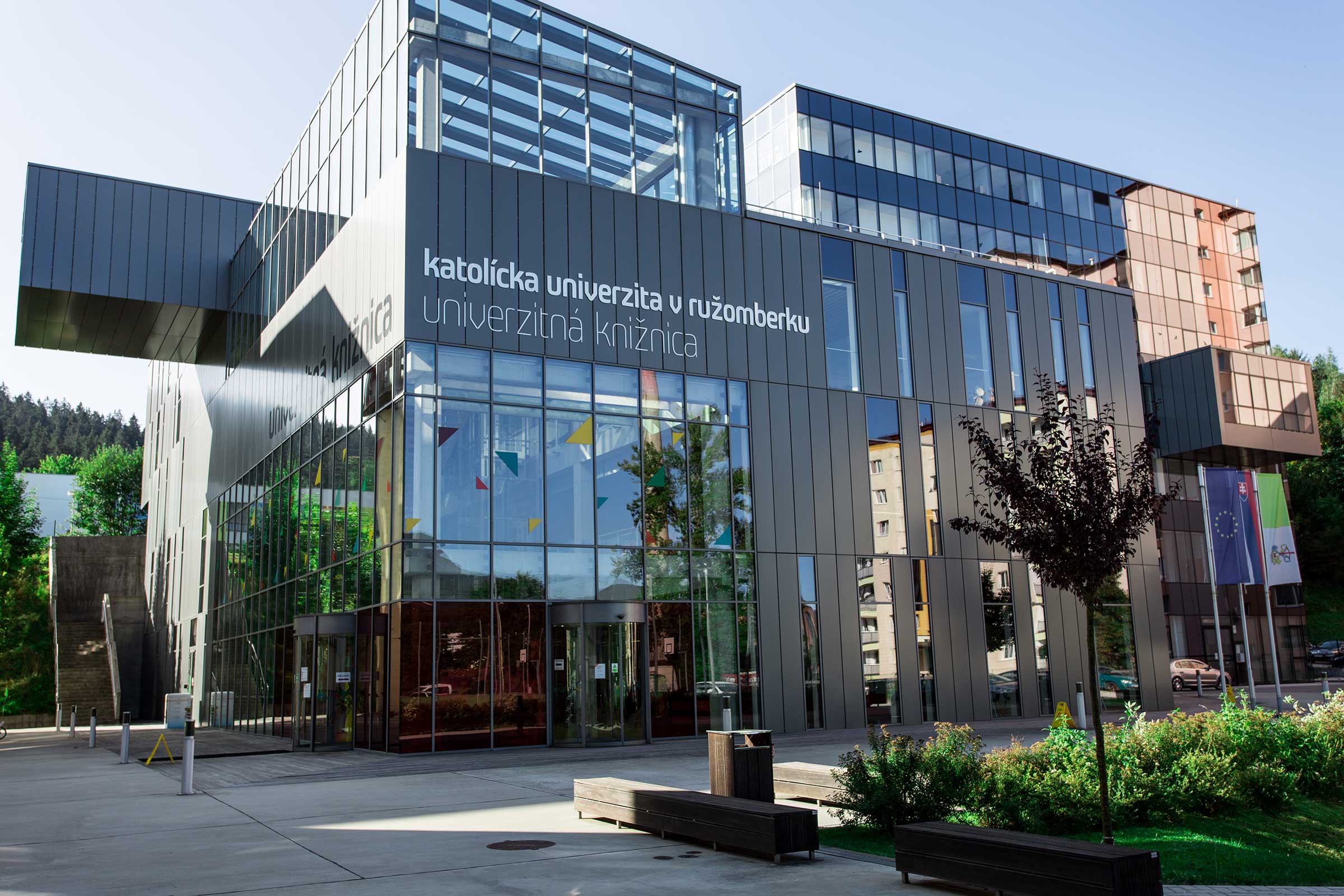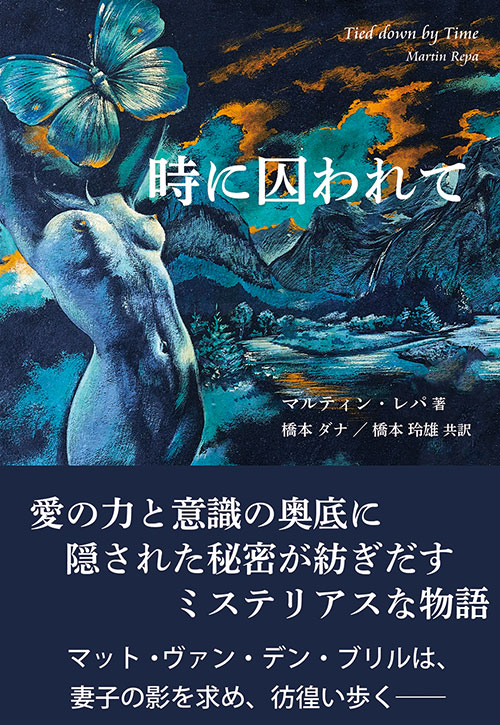
Library of the Catholic University, Ruzomberok, Slovakia, exterior
The ŽLF in Žilina offers its visitors a variety of themes and programs. The three-day festival in September is filled with comics, architecture, travel, children’s books, poetry, novels, science, and more. There are debates with interesting Slovak and foreign authors, thematic discussions, excellent concerts, workshops, all-day children’s program, and a book market with publishers and bookstores.
Established in 2014, the Bratislava Book Festival, held in spring or summer, aspires to be a platform for smaller publishers and to create opportunities for contributors to the literature market such as authors, illustrators, graphic designers, translators, and others. Each year, up to 40 selected small and mid-sized publishers from the V4 (Visegrád Four countries) and Ukraine are invited to participate in a program for the general public and an off-program for professionals.
The LIKE Festival of Contemporary Literature in Košice is usually held in September in the premises of the Tabačka Kulturfabrik and the Artforum Košice Bookstore. It seeks to intensify the contact between all parties involved in literary life in Slovakia such as writers, publishers, booksellers, book editors, translators, literary scholars, and readers. A common theme across all programmes is to strengthen the natural connections between literature and other artistic genres, while also working to link them to broader cultural and social contexts.
Held in November, the international book fair Biblioteka is an important event that influences the atmosphere for that month in Bratislava. With its large variety of genres, the book fair attracts fans of non-fiction, novels, science fiction, detective stories, children’s books, religious literature, and poetry. The fair hosts meetings with authors, ceremonial book launches, lectures, and discussions about literature production.
The Prešov číta rád festival takes place in September across the city of Prešov. Organized by the P. O. Hviezdoslav Regional Library, it offers unique opportunities for meetings with well-known authors and discussions on literature and social topics. It offers young and old readers alike the opportunity to meet their favorite authors and deepen their relationship with literature.
Since 1955, the Literary Fund has awarded the honorary Ivan Krasko Literary Prize to debuting authors. Eligible works must be written in Slovakia by authors who live and have permanent residence in Slovakia, and also be first published in the country. The prize is endowed with 700 EUR and winner also receive a diploma.
The Anasoft litera is an annual Slovak literary award honoring the best original Slovak prose work or the best translation of an original prose work of authors who are primarily citizens of Slovakia. Eligible novels must have been published in the previous calendar year. The award is endowed with 10,000 EUR. The Anasoft litera award is characterized above all by the automatic nomination of all prose works in the Slovak language and by the fact that the jury of five experts changes every year.
Since 1994, the Literary Fund has been awarding a literary prize for the best literary work written and published in the Slovak language for the first time in the previous year. Works in the field of prose, poetry and literary studies, essayistics, children’s and youth literature, as well as non-fiction and dramatic creation realized in theatre, radio, film, and television are eligible for the prize. The prize is endowed with 1500 EUR and winners also receive a diploma.
The Dominik Tatarka Prize, considered one of the most prestigious cultural and literary awards in Slovakia, is an award that reflects the humanistic tradition of Slovak culture, and is based on Dominik Tatarka’s civic attitude. It is given to outstanding works in print or electronic form that continues this spiritual legacy. It is awarded annually by the Conservative Institute of Milan Rastislav Štefánik.
Established in 2017, the René Anasoft Literary Prize is intended to encourage young people to read and build an interest in books, and introduce them to contemporary literature of artistic value. It is awarded once a year by students of selected secondary schools for the best original Slovak prose literary work. The prize is announced by the Literary Information Centre and Anasoft litera.
The Slovak Literary Fund’s Committee of the Section for Artistic Translation has been awarding the Blahoslav Heček Lifetime Achievement Award since 2016. Its purpose is to recognize the achievements of artistic translators who have reached 65 years of age. The Award consists of a diploma, a commemorative plaque from the the Literary Fund and a financial reward of 1,000 EUR.
Established in 1967, the Jána Hollého Prize is awarded by the Slovak Literary Fund’s Committee of the Section for Artistic Translation at the Faculty of Arts. This is the highest award given to translated works in the field of Slovak creative literature. The award is given in two main categories: translation of prose, drama, and artistic essays, and translation of poetry and drama. Both categories will receive a certificate and a cash prize of up to 1,200 EUR.
The Mateja Bella Prize, established by the Slovak Literary Fund’s Committee of the Section for Scientific and Professional Translation, recognizes translations of scientific or professional works. The goal is to encourage the translation of works of content and linguistic value that make a significant contribution to the development of the corresponding scientific field. The awards in each category include cash prizes of approximately 1,000 EUR.
Every year, the AOSS (Association of Slovak Writers’ Organizations) awards the Pavla Országha Hviezdoslava Award to a foreign translator of Slovak literature into foreign language. The jury selects translators who embody the idea that translators of Slovak literature into foreign languages are ambassadors of Slovak literature abroad.
SCUP (Slovak Center of Artistic translation) works closely with the Slovak Literary Fund’s Faculty of Arts to support the dissemination and promotion of Slovak literature abroad, and offers scholarships to foreign researchers from any country in the world, including translators, literary researchers, linguists, lexicographers, university teachers, students of Slovak literature, translation theorists, and others. This scholarship is awarded specifically for translation study abroad and typically lasts for three weeks.
The Visegrad Scholarship is intended for writers, poets, essayists, literary critics, artistic translators, and journalists from all four Visegrad countries. The program is financed by the International Visegrad Fund. Selected applicants can receive a scholarship stay in Prague, Krakow, Budapest, or Bratislava either for a shorter term in spring or a longer term in autumn.
The 11-month residency Trojica Air is provided by the Literary Information Center, the city of Banská Štiavnica, and Literatúra CA to translators of Slovak literature into other languages. A one-bedroom apartment will be provided and translators will be able to work in the center of Banská Štiavnica. There is also a monthly stipend of 1,000 EUR. The residencies are offered to translators only.
The Eleuzína Cultural Centre and the Literary Information Centre have announced short-term residencies in Banská Štiavnica for writers and translators of literature from and into the Slovak language. The stays are usually about two weeks. The authors can work in separate rooms with access to a library, a piano, and a garden.
The Literary Residence in Košice focuses on supporting literary works in various forms, including poetry, literary essays, experimental works, translation, and more. It includes accommodation in Košice, travel reimbursement, a stipend to cover living expenses, and free admission to the cinema Úsmev. The program focuses on creation and translation, and aims for the artists to produce one piece of work.
